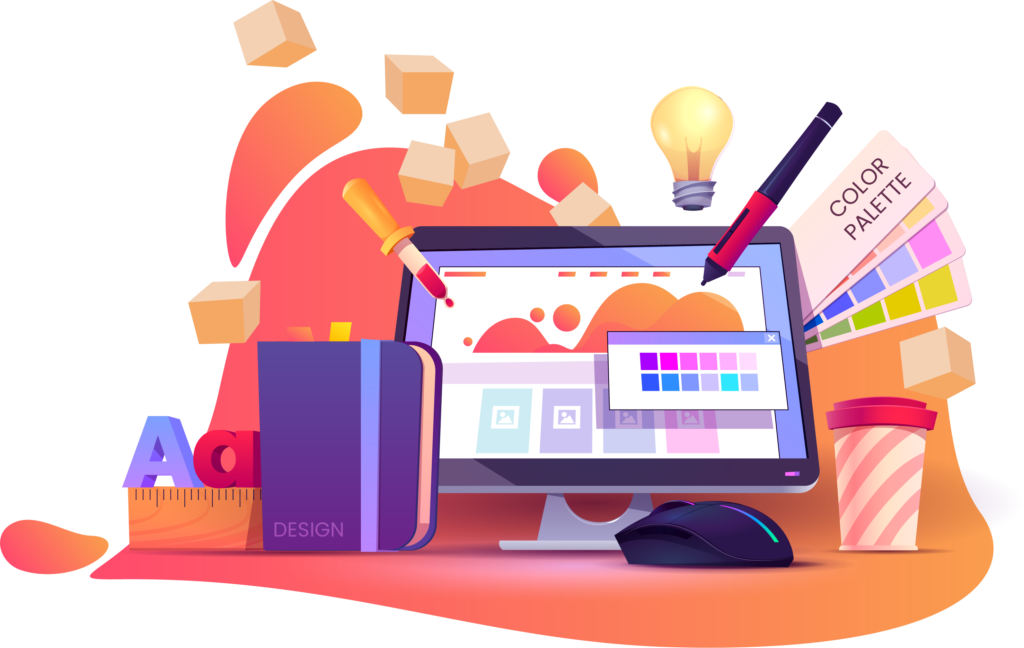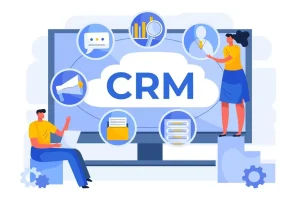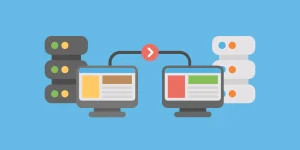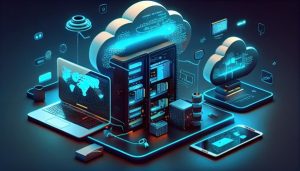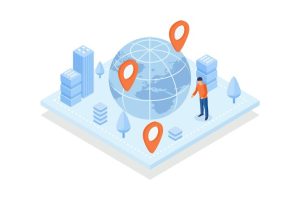AI and the Future of Work – A Transformative Journey
Artificial intelligence (AI) is a game-changer in today’s ever-evolving landscape, profoundly reshaping industries and job markets. This article delves into the transformative impact of AI on the future of work, providing insights, expert perspectives, and answers to frequently asked questions.
The Rise of AI – A Paradigm Shift
AI has rapidly evolved from a futuristic concept to a practical reality, fundamentally altering how businesses operate and how individuals pursue careers. This paradigm shift has far-reaching implications for industries and the job market.
The Impact of AI on industries
1. Enhanced Productivity Through Automation
AI-driven automation is streamlining processes across industries. Tasks that were once time-consuming and error-prone are now efficiently handled by intelligent machines. This not only boosts productivity but also frees up human resources for more creative and strategic roles.
2. Improved Decision-Making with Data Analytics
AI’s ability to process vast amounts of data enables data-driven decision-making. Businesses can now make informed choices, optimize operations, and anticipate market trends with unprecedented accuracy.
3. Personalized Customer Experiences
AI-driven algorithms analyze customer behavior and preferences, enabling companies to offer tailored experiences. From e-commerce recommendations to personalized healthcare, AI is enhancing customer satisfaction and loyalty.
4. Revolutionizing Healthcare
In the healthcare sector, AI is aiding diagnosis, drug discovery, and patient care. Machine learning algorithms analyze medical data to identify diseases early, leading to better treatment outcomes.
5. Transforming Transportation
AI is driving innovation in transportation, with self-driving cars and predictive maintenance reducing accidents and increasing efficiency.
6. Sustainability Efforts
AI is instrumental in optimizing resource usage, leading to sustainable practices in industries such as agriculture, energy, and manufacturing.
AI and the Job Market
7. New Job Opportunities
While AI automation may replace certain tasks, it also creates new job opportunities. Roles in AI development, data analysis, and AI ethics are on the rise.
8. Reskilling and Upskilling
The changing job landscape requires individuals to adapt. Reskilling and upskilling programs are essential to prepare the workforce for AI-related roles.
9. Remote Work and Flexibility
AI facilitates remote work by enabling seamless communication and collaboration. This trend is likely to continue, offering employees more flexibility.
10. Ethical Considerations
AI raises ethical concerns related to data privacy, bias, and job displacement. Addressing these issues is crucial for a balanced AI-driven future.
AI in Education
11. Personalized Learning
AI tailors education to individual needs, making learning more efficient and engaging.
12. Educator Support
Teachers benefit from AI tools that assist in grading, lesson planning, and identifying struggling students.
13. Lifelong Learning
AI promotes lifelong learning by providing accessible online courses and resources.
AI and Creativity
14. Artistic Creations
AI-generated art, music, and literature are pushing the boundaries of creativity.
15. Content Generation
From news articles to marketing content, AI can assist in content creation, freeing up human writers for more strategic tasks.
AI and Accessibility
16. Assistive Technologies
AI-powered devices enhance accessibility for individuals with disabilities, improving their quality of life.
17. Language Translation
AI-driven translation tools break down language barriers, facilitating global communication.
AI in Research and Development
18. Accelerated Innovation
AI expedites research and development processes, leading to breakthroughs in various fields.
19. Drug Discovery
AI assists in drug discovery, potentially speeding up the development of life-saving medications.
AI in Entertainment
20. Gaming
AI enhances gaming experiences with realistic simulations and intelligent opponents.
21. Content Recommendations
Streaming platforms use AI to suggest content tailored to users’ preferences.
AI and Cybersecurity
22. Threat Detection
AI is crucial in identifying and mitigating cybersecurity threats and safeguarding businesses and individuals.
FAQs
Q: How is AI impacting job markets?
AI is both replacing and creating jobs. While some routine tasks are automated, new roles in AI development and data analysis are emerging.
Q: What are the ethical concerns surrounding AI?
Ethical concerns include data privacy, bias in algorithms, and the potential for job displacement. Addressing these issues is essential for responsible AI adoption.
Q: Can AI replace human creativity?
AI can assist in creative tasks, but true creativity remains a uniquely human trait.
Q: How does AI benefit education?
AI personalizes learning, supports educators, and promotes lifelong learning through accessible resources.
Q: What industries are most affected by AI?
AI impacts a wide range of industries, including healthcare, transportation, education, and entertainment.
Q: How can individuals prepare for an AI-driven job market?
Reskilling and upskilling are essential for staying competitive in an AI-driven job market.
Conclusion
AI, a force of profound transformation across industries and job markets, is reshaping the future of work. Embracing AI’s potential while addressing its challenges is crucial for a balanced and beneficial integration. As we navigate this new landscape, the goal should be to harness AI’s capabilities to create opportunities, foster innovation, and ensure a future that benefits all.


